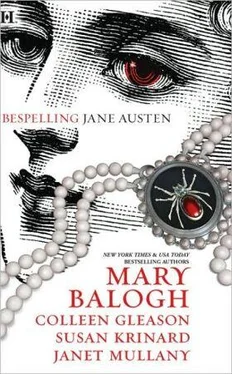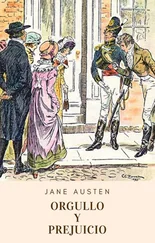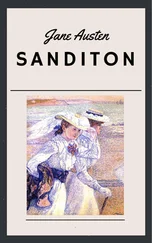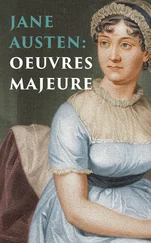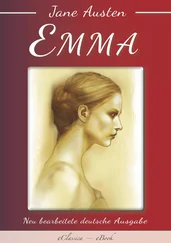On this particular August afternoon, however, all three sisters were on their way to the vicarage, squeezed together on the seat of the gig. Jane would have preferred to walk, but she was outvoted by her sisters, the elder of whom did not wish to arrive with a reddened complexion and bedraggled hem, the younger of whom conveniently fancied that she had turned her ankle while strolling down by the lily pond the previous afternoon.
Jane sat in the middle, the least preferred seat, her arms pinioned against her sides. They were on their way to offer formal congratulations to elderly Mrs. Mitford on the occasion of her seventy-fifth birthday.
It was strange, Jane reflected as the carriage bowled along the driveway between sweeping lawns of the park, how the events of seventeen years ago could still embarrass her and make her reluctant either to call at the vicarage or to come face-to-face with elderly Mrs. Mitford.
She had been only four years old at the time.
Her mother, now deceased, had been returning an afternoon call made upon her two days before, and she was taking Louisa and Jane with her. Mrs. Mitford had been recently widowed, though she had remained at the vicarage, her husband’s living having been granted to his son. She was a tragic figure nevertheless, Jane had overheard her mother tell her father before they left home, having suffered a great deal of trouble and loss in her life.
Jane’s father had just succeeded to his title on the passing of his uncle. They had moved to Goodrich Hall only a week earlier, in fact. Jane had never seen either the vicarage or Mrs. Mitford before that afternoon. Though she was to disgrace herself horribly over both when she finally did see them.
She could remember it clearly now, though she had been very young then—and had tried her best ever since to block the memory from her mind.
She did not, after all, want to burn as a witch. Or be snatched away by gypsies.
“Oh, look,” she had cried to her mother and Louisa, pointing excitedly at the vicarage as they approached in the carriage. “I used to live there.”
Louisa had tutted and tossed her glance at the roof of the carriage.
“You are strange, Jane,” she had said. “Why would you even want to live there? ”
“You are mistaken, Jane,” her mother had said kindly but firmly. “Of course we have never lived in such a small cottage. You really must learn to confine your imagination to the nursery and your dolls.”
Jane had forever been suffering scolds for the vividness of her imaginings, which at the time she had called real and her father had called falsehoods and her mother had called inappropriate. Her nurse had occasionally made her stand in a corner to reflect upon her fibs.
After the housekeeper had admitted them to the house, Jane had looked about at the familiar scene with wide-eyed interest, noticing what was still the same and what had changed. And then, before she could say anything about her observations to her mother, a straight-backed, sweet-faced but sad-looking lady dressed all in black had stepped into the hallway to greet them. Jane had smiled brightly at her and committed the horrible social error of speaking up before any of the adults had had a chance to do so and before anyone had spoken to her.
“Oh!” she had cried—and she had laughed aloud with glee. “You used to be my mother.”
Mrs. Mitford had looked mystified, Jane’s mother had looked mortified and Louisa had smirked, because she was behaving with perfect six-year-old manners.
Jane had made matters worse before anyone could stop her.
“I fell in the river and drowneded,” she had said, eager to explain. “The water wasn’t terribly deep, and it wasn’t terribly cold, either. But it took me by surprise and I drowneded. You need not have been dreadfully unhappy, though, and I would have told you so afterward if I could, but I couldn’t. I went down and down into the water until I came to the light, and it was the most lovely light in the world. And he called me with his hands and I went and everything was—oh, so lovely that I didn’t really want to come back after all. Not just then, anyway. But you can see now that you need not have worried. Here I am, safe and sound.”
She had been beaming with happiness, her arms outspread, waiting to be recognized and embraced, when Mrs. Mitford crumpled into an insensible heap on the floor.
Back at Goodrich Hall a short time later, Jane had spent a few hours alone in the nursery, seated on a hard chair, before being fetched down to her father in the library and informed in a long speech, most of which she did not understand, what it meant to be Miss Jane Everett of Goodrich Hall, daughter of Sir Horace Everett, upon whose head she must never ever again bring down such shame. If she persisted in her wicked untruths, it was altogether probable the gypsies would come one night and take her away.
And back in the nursery she had faced what had seemed worse to her—her mother’s sorrow. She had shed a few tears as she questioned Jane about how she knew the story of Mary Mitford, who had been abandoned by her lover and had then thrown herself into the river to drown. Though the official version was that she had slipped and fallen in and drowned by accident. Only so could she be granted Christian burial in the churchyard where her father was vicar.
“But it really was an accident, Mama,” Jane had whispered. “I did not mean to fall in, and I did not mean to drown. Maybe I could have fought harder, but the light was so lovely. And he was there waiting for me, calling me with his hands. And then I was very happy. I had been sad before that.”
Her mother had looked more troubled than convinced. She had taken Jane’s hands and held them tightly while entreating her to curb her imagination in future.
Jane had promised. By then she was thoroughly frightened and did not wish to keep having the memories everyone called lies. She was afraid gypsies really would come for her one night when she was all alone in her bed and nurse far away in the next room.
That was not quite the end of the matter. The following day Jane’s father had made mention of the burning of witches, whose numbers included those who lied and pretended to be dead people come back to life.
Her memories could not be memories, Jane had told herself, if everyone said they were not. The vicarage must look like a house she had once made up in her imagination. Mrs. Mitford must look like a mother she had invented for one of her games. She must have overheard some of the servants talking about the poor dead Mary Mitford, though she certainly could not remember doing so and she had only been at Goodrich for a week. Her mother said that was what must have happened, though.
And so Jane had suppressed all memories from that time on—or all memories that were unlike everyone else’s anyway. She became a quiet, solemn, obedient child.
Her sisters had been talking all the way to the vicarage while Jane was lost in uncomfortable reverie.
“I do not know why our father could not spare the carriage,” Edna was saying when Jane took notice. “There is not enough room in the gig. If Jane would move her arms forward instead of insisting upon keeping them at her sides, there would be more room for the rest of us, but it is ever her way to be selfish. I daresay I shall have a sore side all the rest of the day.”
“I wonder,” Louisa said, “if Captain Mitford has arrived at the vicarage yet. He is expected this week, according to Amelia, and it would be a courtesy to arrive on his great-aunt’s birthday, would it not?”
“Who is Captain Mitford?” Edna asked, all sudden interest.
Читать дальше
